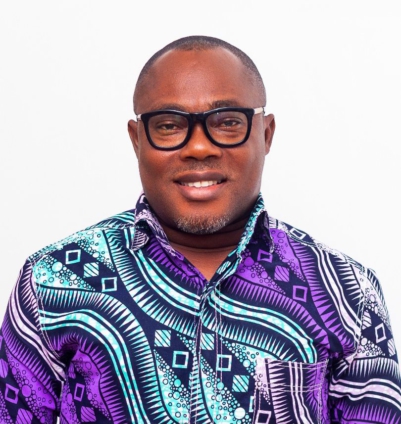A Senior Lecturer at the University of Ghana, Prof. Ransford Gyampo has suggested for the Electoral Commission (EC) to emulate the patriotic stance of Dr. Kwadwo Afari-Gyan by prioritising consensus building instead of insisting on its mandate.
According to the Political Science lecturer, if the EC insists on implementing policies because it is mandated to do so, especially in the face of clear disagreements among political actors, as in the case of the EC's attempts to make the Ghana Card the sole identity document for the registration of voters, chaos may be the outcome.
The EC has tabled a Constitutional Instrument before Parliament which if approved, will make the National Identification Card (Ghana Card) the sole evidence of citizenship for the compilation of a new voters' register for the 2024 general election.
The move is vehemently opposed by the opposition National Democratic Congress (NDC), which says many voters will be disenfranchised if the CI becomes law.
And Prof Gyampo, while contributing to discussions on Joy FM’s Newsfile on Saturday and also in a write-up, suggested that this major disagreement must avert the minds of officials of the EC to the need to proceed with caution and build consensus first, citing an action of a former chairperson of the EC, Dr. Kwado Afari-Gyan, when it came to the implementation of the controversial Representation of the People's Amendment Law (ROPAL) in 2006, to allow Ghanaians abroad to vote in Ghana elections.
Said Prof Gyampo: “…The Electoral Commission has been unable to build consensus on this matter, which is a key issue that would contribute to determining the electoral fortunes of political parties in the 2024 General Elections. Without consensus around the EC’s decision, there would be chaos and implosion. Dr Afari-Gyan was wise and cautious in building consensus among the key political actors on major decisions that could have plunged the country into chaos if they had not been handled well. In 2006 for instance, President Kufuor introduced the Representation of the Peoples’ Amendment Law. The bill was fought by Civil Society and many Pro-Democracy Forces through demonstrations, petitions etc. But the NPP majority passed bill and the President accented to it the same day to become law. But Dr Afari-Gyan took a very wise, patriotic stance, never to implement the law, so long as there remained lack of consensus among the key political actors. His fear was that, without consensus, the implementation of ROPAL could lead to serious political conflict. This is why the ROPAL has since not been implemented in spite of Kufuor’s signing it into law with alacrity. I respectfully urge the current EC bosses to copy from best practices as the Bible tells us in 3rd John 11a.”
Latest Stories
-
Hohoe Ghana Blind Union organises training for members ahead of Election 2024
3 mins -
Alan Kyerematen reveals his future plans for Ghanaian Health professionals
4 mins -
AAIN empowers women and small enterprises in Upper East Region through SHINE project
5 mins -
Akufo-Addo leads nationwide commissioning of 80 educational projects
11 mins -
Ghana and Seychelles strengthen bilateral ties with focus on key sectors
42 mins -
National Elections Security Taskforce meets political party heads ahead of December elections
46 mins -
Samsung’s AI-powered innovations honored by Consumer Technology Association
1 hour -
Fugitive Zambian MP arrested in Zimbabwe – minister
1 hour -
Town council in Canada at standstill over refusal to take King’s oath
2 hours -
Trump picks Pam Bondi as attorney general after Matt Gaetz withdraws
2 hours -
Providing quality seeds to farmers is first step towards achieving food security in Ghana
2 hours -
Thousands of PayPal customers report brief outage
2 hours -
Gary Gensler to leave role as SEC chairman
2 hours -
Contraceptive pills recalled in South Africa after mix-up
2 hours -
Patient sues Algerian author over claims he used her in novel
3 hours

